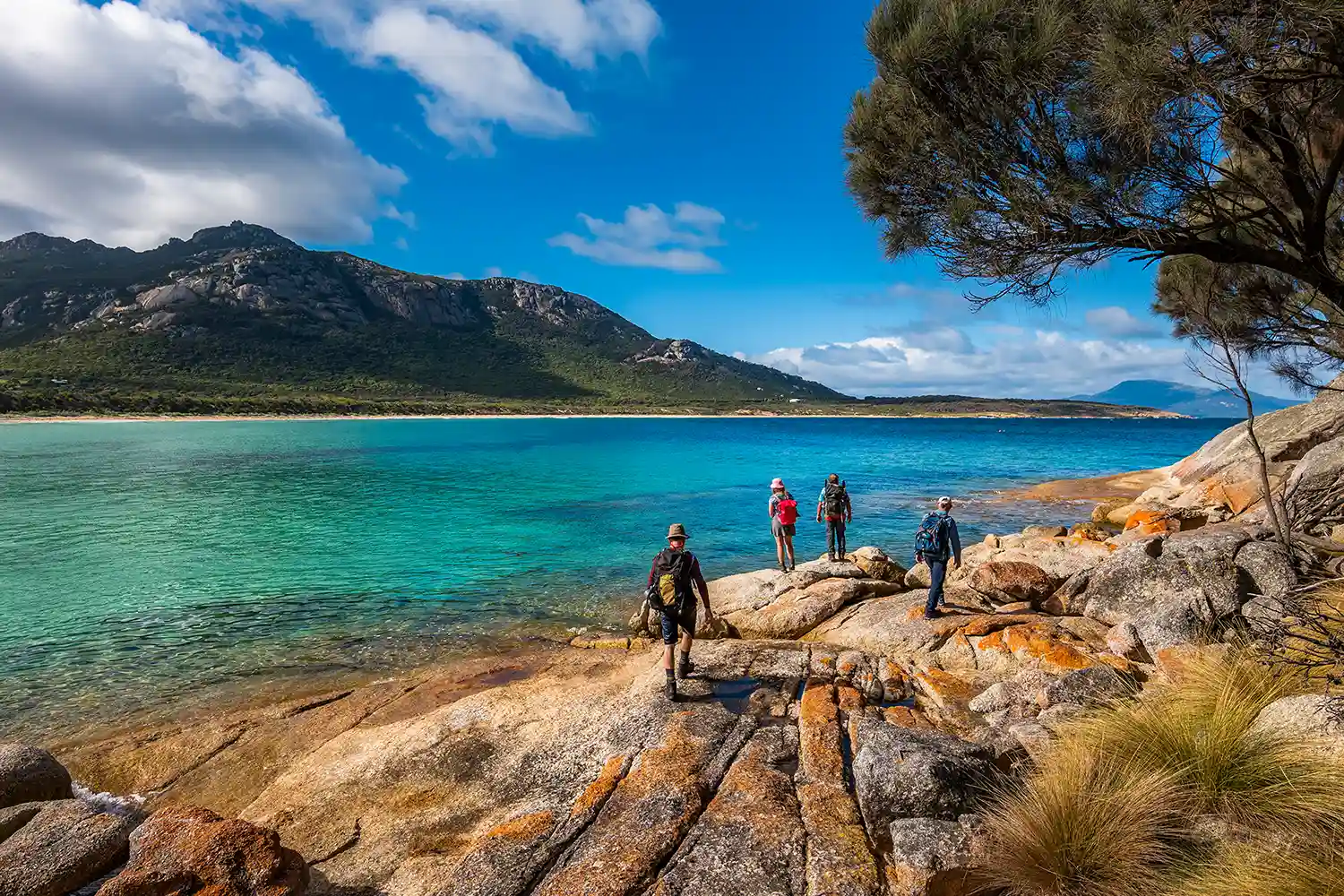Thoughts from Beth Thoren: "The day I met a whale and how it moved me to protect our oceans." Outdoor apparel brand Patagonia has launched a campaign to stop bottom trawling in Europe. Beth Thoren, Director of Environmental Campaigns at the company, explains why this issue is close to her heart.
"Have you ever looked a whale in the eye? I have. It was thirteen years ago in the Ross Sea. I was miles from land, nothing but the freezing Antarctic Ocean and floating ice floes around me. I was leaning over the railing, looking out to sea, when suddenly a beautiful creature the size of a semi came almost within my reach, pushing gracefully beneath the waves.
I was in awe and tried to recite the moment, because the dimensions of a whale are incredible. This whale was almost as long as the entire ship. And then it emerged from the icy, dark waters of this vast and wild ocean.
But it was not only the size and ferocity of this whale, but its behavior. He gracefully bent his body to look me in the eye. And when I say "look," I really mean look. As I stared into those majestic, jet-black eyes for a few seconds, I felt connected to an intelligent and curious creature that was consciously aware of me. I felt like I was being drawn into those incredible eyes and looking deep into the source of the universe. They were mysterious, awe-inspiring, and beyond my understanding, but at the same time I felt like I was a part of it. There was a place for me, this little person.
As quickly as he surfaced, he was gone again, back beneath the waves, back in his wild home in the sea.
If you've ever lain on a beach and looked up at the stars, you may know this feeling. You should feel lost, but you don't. Instead, you feel great, like you're connected to this wonderful world. Nature has a unique way of bringing us to this place of connectedness; it reminds us of the small but unique place we occupy in the universe.
Everyday life pulls most of us away from that moment and back to the old familiar grind; but for me, that look into the whale's eyes changed something in me. Maybe it was because I wasn't on just any ship. I was at sea with the Sea Shepherd Conservation Society, a remarkable conservation organization. And the ship I was on acted as a physical barrier between the whales and a Japanese whaling fleet. This strategy succeeded in saving hundreds of whales from unnecessary slaughter.
This all took place during a sabbatical from working as a marketing executive in the middle of my professional career. Up until the moment I looked into the whale's eyes, I had every intention of returning to the business world I had come from. But when it happened, I could no longer stand by and watch nature and its unique creatures - and with them our future - being wantonly destroyed.
So I changed my path without further ado. For the next eight years, I worked for the conservation organization RSPB and then for the environmental rights organization ClientEarth. Then, two and a half years ago, I started my current job as Director Environmental Action in Europe at outdoor clothing company Patagonia.
In recent months, we have launched a major new campaign to raise awareness about the destruction being inflicted on our oceans around the world and the need to protect them so they can protect us. The list of destruction is frighteningly long. In Europe, some of the worst damage is caused by bottom trawling, which involves dragging heavy fishing nets up to 46 meters wide across the ocean floor. It's like driving a bulldozer through a forest. Tons of the carbon-binding vegetation that serves as nurseries for the fish is simply ripped away. We're losing what we need most to absorb carbon from the atmosphere and fight climate change.
In addition, there are the huge amounts of bycatch that are caught "unintentionally" in this process. The trawlers throw them overboard dead or dying. This can include turtles, rays, sharks and even dolphins. About 92 percent of discards recorded in Europe are from bottom trawling. In 2019, this amounted to nearly 230,000 tons of marine life needlessly killed (source: WWF). This momentous overfishing, along with habitat and nursery destruction, is causing fish populations to collapse across Europe. In Scotland alone, cod landings have fallen to almost zero over the last 40 years. This in turn has led to the disappearance of fisheries and coastal communities.
This practice is absolutely unjustifiable. That is why our Campaign to end bottom trawling. with an immediate ban in marine protected areas and nearshore zones. Marine protected areas are ecologically sensitive and are often designated for the conservation of a particular species. They should be havens for marine life, not places of overfishing. Along the coast, small-scale fisheries make a living with little ecological impact. They stand little chance against bottom trawling, which is the opposite of their conscious approach to fishing. Bottom trawling threatens the future of the entire fishing industry.
I believe that a different model is possible. A model that is better for our ocean and for marine life. And also for the billions of people around the world whose food, energy and overall well-being depend on the ocean. Patagonia has released a series of eight short documentaries that tell stories of people around the world who are protecting our oceans. Each film features people who are pioneering efforts to revitalize our oceans. People like Francois Beyers, who grows seaweed and mussels off the coast of Wales (For the Love of the Sea). Or Raquel Gaspar, a marine biologist who is restoring seagrass beds in Portugal (Madre Mar). Or residents:inside the Scottish west coast who are restoring a once thriving loch that has been badly affected by bottom trawling (The Custodians).
Very few people have the opportunity to look into the eyes of a whale. For me, it was a special privilege that has shaped my thinking ever since. But each:r of us has a unique connection to the sea - whether we live, work, vacation or play sports there. The next time you stand on a shoreline and look out to sea, imagine what lies beneath the surface. It's impossible not to be moved. The sea takes care of us. It animates us. And most of all, it reminds us of our place in this wonderful, complex, interconnected universe.
So let's protect our oceans so they can protect us.




